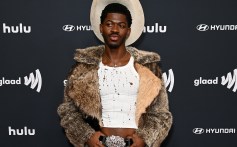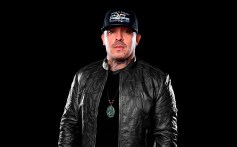Legal
Page: 3
Trending on Billboard
Usher is suing music producer Bryan-Michael Cox and other organizers of a failed Atlanta restaurant project, claiming in a new lawsuit that they still owe him $700,000 and misused money he lent to buy the property.
In a case filed last week in Georgia court and obtained by Billboard, the Atlanta superstar says he lent more than $1.7 to Cox and others to help purchase a building for “Homage ATL,” a high-end restaurant and lounge in the city’s tony Buckhead neighborhood.
Related
When the deal didn’t go through, Usher’s lawyers say he demanded his money back, but the Homage organizers only returned $1 million – because the rest had allegedly been used elsewhere without permission.
“Plaintiff loaned [the money] for the sole purpose of purchasing the Buckhead property,” Usher’s attorneys write. “The defendant investor group failed to purchase the Buckhead property and, instead, diverted the Raymond loan balance for [other] purposes.”
Cox is a well-known R&B producer who’s produced hits for Mary J. Blige, Mariah Carey and Usher himself. The other defendants are alleged project partners Keith Thomas and Charles Hughes, as well as attorney Alcide Honoré and several companies allegedly tied to the project.
In a statement on Instagram, Cox seemed to pin the blame for the dispute on others: “My legal team has … advised me of a lawsuit involving a company where I am only a passive minority shareholder. I was not a participant in that business transaction and have no involvement in the ongoing legal process. While I’m unable to share more details right now, I want to make one thing absolutely clear: my 27-year friendship with @usher remains fully intact.”
But Usher’s lawyers don’t seem to be in a friendly mood. They claim Cox and the rest of the Homage organizers were “unjustly enriched” by using the remaining loan funds for other reasons, “which was to plaintiff’s detriment, damage, and expense.”
Related
Usher’s case claims that Cox, Hughes and Thomas approached him last year about the project, which was “intended to offer the public a unique dining lounge experience.” Though he says they wanted the locally-raised superstar to sign onto the project as a full-fledged partner, Usher says he “declined to become an investor” and instead opted merely to loan the group money to buy the restaurant’s location for more than $6 million.
As the “days and months passed” in early 2025, the two sides continued to negotiate a potential investment by Usher, but no deal was ever reached and the Buckhead property was never purchased. Eventually, the star says he demanded his money back – but that Honoré effectively told him that some of the funds had been used elsewhere.
“Honoré all but admitted that the Raymond loan balance was disbursed when he stated that returning that balance was ‘not that easy’ because plaintiff’s funds had been deployed for ‘other purposes’,” Usher’s attorneys write. “Honoré stated [that Usher] would be repaid once the Buckhead property was purchased and the property was refinanced, indicating that he apparently no longer had possession, custody, or control over the funds.”
Several of the lawsuit’s claims are aimed solely at Honoré, including breach of bailment – meaning he failed to return Usher’s property – as well as various other forms of wrongdoing, including negligence and breach of fiduciary duty. He did not return a request for comment. The case accuses the rest of the investors of breach of contract, unjust enrichment and keeping money that wasn’t theirs. Thomas and Hughes could not immediately be reached for comment.
Trending on Billboard
THE BIG STORY: Almost 20 years after Kim Kardashian burst into the national consciousness with a leaked sex tape, the male participant in the video says it wasn’t actually leaked at all.
In an explosive lawsuit filed last week, the R&B singer Ray J claimed the film was intentionally released by his then-girlfriend, Kardashian, and her mother, Kris Jenner, who have since spent nearly two decades “peddling the false story” that it was leaked.
Related
That’s not an entirely new claim; rumors have long swirled about the infamous tape that launched the billion-dollar Kardashian empire. But the family has always denied the claim, and there was no hard evidence or inside knowledge to argue otherwise.
How exactly did Ray J and Kardashian get to this point? And how do you sue someone over this? For the full backstory and the breakdown of the case, go read our story here.
You’re reading The Legal Beat, a weekly newsletter about music law from Billboard Pro, offering you a one-stop cheat sheet of big new cases, important rulings and all the fun stuff in between. To get the newsletter in your inbox every Tuesday, go subscribe here.
Other top stories this week…
GIMME DAMAGES – The company that owns the early Rolling Stones catalog filed a lawsuit against Behr Paint over an Instagram ad that allegedly featured “Paint It, Black” without a sync license.
DAY IN COURT – Lil Nas X made his first court appearance since leaving an inpatient treatment program following his August arrest for attacking police officers during a late-night naked walk.
CONVICTION AFFIRMED – An appeals court upheld the conviction of Tory Lanez for shooting Megan Thee Stallion, rejecting his arguments aimed at overturning his 10-year prison sentence.
CONTEMPT OF COURT – Elsewhere in the Tory-Megan saga, a judge held Lanez in contempt for refusing to be deposed: “Whatever the fines are, I’ll pay them,” he said. “I’m a millionaire. I don’t care.”
RELEASE DATE – Sean “Diddy” Combs’ projected release date was pushed back by a month, a move that came after media reports that he violated prison rules by drinking homemade alcohol.
DOWNTOWN DISPUTE – Downtown Music faces a lawsuit claiming it threw licensing partner Blast Off Media under the bus as a “sacrifice” to lessen regulatory scrutiny of its acquisition by UMG.
DEATH THREATS? – Lil Durk’s lawyers say they’ve been “kept in the dark” about alleged death threats that were called in to a judge and the lead prosecutor in his murder-for-hire case.
DRAKE SUED, AGAIN – A new lawsuit against Drake claims his music video ripped off the work of an Italian photographer — and, in a strange twist, that he did it as part of his feud with Kendrick Lamar.
NO SEQUEL – Cardi B’s lawyers scoffed at the idea of a second trial in Emani Ellis’ failed assault case against the superstar, calling it “absurd” after jurors easily rejected the allegations.
CASE DROPPED – A$AP Relli is ending his civil lawsuit against A$AP Rocky over an alleged Hollywood shooting, months after Rocky was acquitted on such accusations at a criminal trial.
FREE, FOR NOW – Music executive Ángel Del Villar will remain a free man while he appeals his convictions for doing business with Mexican drug cartels and the resulting four-year prison sentence.
BITTER BREAKUP – There’s a new front in the nasty legal war between hip-hop producer Madlib and his longtime manager Eothen “Egon” Alapatt: The copyrights to their songs.
MORE ALLEGATIONS – After Calvin Harris’ bombshell fraud lawsuit against business manager Thomas St. John, fellow star DJ Eric Prydz has now filed his own case claiming the manager stole $269,000.
LOCK HIM UP – Prosecutors want Tekashi 6ix9ine sent back to prison over multiple violations of his supervised release, including assaulting someone who taunted him as a snitch.
LIBEL LAWSUIT – Biggie’s son filed a defamation case against a Florida music producer who accused him — he says falsely — of participating in one of Sean “Diddy” Combs’ sexual assaults.
Trending on Billboard
Eminem has launched a legal battle with an Australian beach umbrella brand called “Swim Shady,” claiming the company is just imitating his “Slim Shady” alter ego.
The rapper, whose real name is Marshall Mathers, is fighting a legal action at the U.S. Patent and Trademark Office, seeking to cancel an American trademark that the Sydney-based Swim Shady secured on its name earlier this year.
Related
Eminem’s attorneys say the similar-sounding name “uniquely and unmistakably” points to the “internationally renowned recording artist and entertainer” – and that customers will be “deceived” into thinking he’s somehow involved.
“The petitioned mark is highly similar to petitioner’s name,” his lawyers write in their September petition, obtained by Billboard. “Consumers and potential consumers, and anyone seeing one of respondent’s products in the marketplace … will assume that the source of the goods emanates from [Eminem].”
Eminem debuted the Slim Shady name in 1997, using it for an aggressive alter ego that explores darker and more violent subjects. His 1999 album The Slim Shady LP, which reached No. 2 on the Billboard 200, focused heavily on the name, including his breakout “My Name Is” and his smash hit “Real Slim Shady” that reached No. 4 on the Hot 100.
The star has had “Slim Shady” registered as a federal trademark since 2001, holding rights to the name covering a wide range of goods. And he’s not afraid to enforce those rights: In 2023, he filed a similar case against Real Housewives stars Gizelle Bryant and Robyn Dixon over their efforts to get a trademark for the name of their “Reasonably Shady” podcast.
Related
Swim Shady launched earlier this year to sell a small, foldable beach umbrella – a product it says is aimed at “solo beachgoers who wanted better sun protection without the hassle.” And the company has big plans: According to its website, it is seeking or has secured trademarks for that name around the globe, including in China, the U.S. and the European Union.
In September, the USPTO formally granted the company an American trademark registration for its name, covering both beach gear and a wide assortment of apparel. Such a registration makes it easier to sue someone selling a knock-off brand and allows a company to use the ® symbol.
But Eminem’s lawyers, in their Sept. 29 petition, say Swim Shady’s trademark never should have been registered. Such cases, filed with the PTO’s Trademark Trial and Appeal Board, are a common way that brand owners prevent others from securing rights to their names.
Eminem knows that process well. Since 2003, his lawyers have filed at least six such cases at that trademark dispute body — including not just the Real Housewives case but also one against an apparel brand called “Shadzy” and another against a sunglasses brand called “Shady Character.”
Related
Many other superstar artists have taken similar proactive measures to defend their names against similar-sounding trademarks filed by third-parties, which are cheap to file and sometimes slip through the approval process. Taylor Swift filed a case in 2017 to block a “Swifty” trademark; Jay-Z has filed more than ten over the years.
Such cases don’t legally stop a company like Swim Shady from using a brand name on their products, but merely from securing their own trademark rights to it; only a full-fledged federal lawsuit can shut down an infringing company. But in his new case, Eminem suggests that he thinks Swim Shady’s use of the name violates his rights.
“Petitioner is and will continue to be damaged by any sale or any offering for sale of Swim Shady goods by respondent, since there will exist a false association and suggestion as to the source of the goods involved,” his lawyers write. “Any inferior quality of respondent’s goods will damage the reputation of petitioner’s premium goods and services.”
Reps for both Eminem and Swim Shady did not immediately return requests for comment.
Trending on Billboard Lil Nas X and his legal team were in good spirits during the hip-hop artist’s first court hearing since leaving an inpatient treatment program following assault charges. The singer and rapper (Montero Hill) appeared in Los Angeles court on Monday (Nov. 17), two months after he was arrested for attacking police officers […]
Trending on Billboard
A federal judge has held Tory Lanez in contempt of court on the eve of trial in a civil lawsuit filed by Megan Thee Stallion – a move that came after the singer said: “I’m a millionaire. I don’t care.”
In a ruling Sunday evening, the judge said that Lanez (Daystar Peterson) – currently serving a 10-year prison sentence for shooting Megan in 2020 – had behaved so poorly during three different depositions that he must now pay a $20,000 fine.
Related
According to U.S. Magistrate Judge Lisette M. Reid, that’s an outcome Tory already shrugged off during the most recent debacle: “When told his behavior could result in contempt of court and sanctions consisting of fines and additional jail time, Mr. Peterson then said, ‘whatever the fines are, I’ll pay them. I’m a millionaire. I don’t care’.”
The ruling came a day before the start of a jury trial in a civil lawsuit Megan filed last year against social media personality Milagro Gramz (Milagro Cooper). The star claims Gramz waged a “coordinated campaign” with Lanez to “defame and delegitimize” her in the wake of the shooting.
In addition to the monetary fine, the judge also said that jurors in that trial should be told about Lanez’s refusal to answer questions about whether he ever communicated with Gramz – an unwelcome development for her defense attorneys.
Lanez was convicted in December 2022 on three felony counts for shooting Megan in the foot in July 2020 during an argument following a pool party at Kylie Jenner’s house in the Hollywood Hills. In August 2023, he was sentenced to 10 years in prison. His appeal of the verdict and sentence was denied last week.
Related
Last year, Megan filed her civil lawsuit against Gramz, calling her a “mouthpiece and puppet” for Lanez who had been “churning out falsehoods” about the criminal case on his behalf: “Enough is enough,” her lawyers wrote at the time.
Unsurprisingly, Lanez is a key witness in that lawsuit, and Megan’s lawyers have repeatedly tried to depose him from prison. But each time, the singer has disrupted the proceedings and refused to answer questions; Megan’s lawyers have said he’s “made a mockery of the proceedings.”
In her ruling on Sunday, Judge Reid echoed those claims. She said Megan’s lawyers had been “unable to ask more than two questions before Mr. Peterson stormed out of the room.” The judge said Tory later made “derogatory comments” and hurled “multiple expletives” toward Megan’s lawyers and never answered any questions.
Lanez’s attorney, Crystal Morgan, also drew the judge’s ire. Judge Reid said she had objected to questions that were “clearly relevant” during the brief deposition, and had engaged in “coaching the witness.” The judge ordered her to pay $5,000 as her fine.
Related
Trending on Billboard The 26-year-old Australian man who charged at Ariana Grande in Singapore has been sentenced to time in jail, according to reports. After going viral last week for jumping the barricade at the Asian premiere of Wicked: For Good and grabbing ahold of the pop star, Johnson Wen will now spend nine days […]
Trending on Billboard
Music executive Ángel Del Villar will remain a free man while he appeals his convictions for doing business with Mexican drug cartels, a federal judge said.
Del Villar was scheduled to report to prison on Dec. 1 to begin serving his four-year prison sentence on the cartel-ties convictions, but Judge Maame Ewusi-Mensah Frimpong granted his request to stay out on bond during the appellate process. Such appeals can take a year or more to resolve.
Related
Siding with arguments last month by Del Villar’s attorneys, the judge said the convicted executive had cleared the low bar for remaining free: that his appeal raised sufficiently arguable points about her jury instructions that an appellate court might be persuaded.
“Del Villar need only show that his appeal raises a fairly debatable question,” Judge Frimpong wrote. “The Court finds that—although the Court does not see any error in its trial rulings or in its jury instructions—that at least the question of the deliberate ignorance instruction is a ‘fairly debatable’ one.”
Del Villar, who founded his Del Records in 2008, built the label into a powerhouse for regional Mexican music, home to supergroup Eslabon Armado, Lenin Ramirez and other chart-topping artists.
But in June 2022, federal prosecutors unveiled charges against Del Villar, 41, CFO Luca Scalisi, 56, and Del Records under the Foreign Narcotics Kingpin Designation Act – a statute that allows the U.S. to impose targeted sanctions on foreign individuals involved in the illegal drug trade and ban U.S. residents from doing business with them.
The feds claimed that Del Villar had repeatedly arranged concerts with Jesus Pérez Alvear, a Guadalajara-based promoter with cartel ties. And at a March trial, superstar Gerardo Ortiz took the stand to testify against Del Villar, saying he had seen Pérez Alvear at the Del Records offices and had himself performed at one of the promoter’s concerts.
Related
Del Villar’s defense attorneys argued back that he had been “manipulated” into working with Pérez Alvear by a “trusted” former employee. But the jury didn’t buy it, finding him guilty on 10 counts of violating the Kingpin law, as well as one conspiracy charge. In August, Judge Frimpong sentenced him to 48 months in prison on those convictions.
With that sentence looming and his appeal still in the earliest stages, Del Villar’s attorneys urged the judge to postpone his December prison report date. In the process, they also previewed how they will likely challenge the verdict on appeal.
They say they have a particularly strong argument on how the judge instructed jurors that they could convict Del Villar by finding that he willfully blinded himself to Pérez’s shady connections. They say prosecutors couldn’t prove he took concrete actions to avoid such knowledge, but that Judge Frimpong gave the jurors that option anyway.
“The government pointed to no evidence — and the record contains none — from which a jury could conclude beyond a reasonable doubt that Del Villar took ‘deliberate actions’ or made ‘active efforts,’ his lawyers wrote, later adding that the judge’s instruction “went to the heart and most hotly contested aspect of the case.”
Trending on Billboard
C.J. Wallace, son of The Notorious B.I.G., has countersued for defamation after a Florida music producer and publicist accused him of participating in a sexual assault with Sean “Diddy” Combs.
Jonathan Hay filed a lawsuit this summer claiming that while working on a remix project with the Biggie estate in 2020, Wallace and an associate brought him to a house where Combs forced him to perform oral sex. The case also alleged multiple other instances of sexual misconduct by Combs, who’s faced a barrage of civil assault lawsuits since being criminally charged last year.
Related
Wallace is now hitting back at Hay with a countersuit in which he calls the allegations a “calculated smear campaign.” The federal court complaint, filed Wednesday (Nov. 12), alleges Hay fabricated these claims because he was upset about their remix project falling through.
The countersuit alleges the estate decided to shelve the project — a house remix of Biggie’s 1994 album Ready to Die, called Ready to Dance — after the first single (a remix of “Big Poppa”) flopped in August 2020. Wallace says Hay was “irate” at this decision and later came up with a phony story about the alleged Combs assault.
“The statements constitute defamation,” writes Wallace’s attorney, Jeremiah Reynolds of Eisner LLP. “As a direct and proximate result, Wallace has suffered general and special damages, including loss of professional opportunities, humiliation and mental anguish.”
Wallace’s defamation claims don’t actually target Hay’s sexual assault lawsuit, since legal filings are broadly shielded from slander liability under a principle known as the litigation privilege. Instead, Wallace’s case focuses on an October YouTube video in which Hay repeated and described his claims in detail.
Related
While Hay’s assault lawsuit was filed anonymously, he revealed his identity in this video, titled “Jonathan Hay Details EXACTLY What Happen When Diddy A$$AULTED Him, Forced to S*CK D*CK & VlOLATED!”
Hay declined to comment on the countersuit when reached by Billboard on Friday (Nov. 14), but noted that he’s filed a police report in addition to the pending civil lawsuit against Combs and Wallace.
Combs’ reps did not immediately return a request for comment on the matter. The disgraced rap mogul is serving a prison sentence for arranging drug-fueled sex marathons between his girlfriends and male escorts, though he was acquitted of more serious sex-trafficking and racketeering charges at a blockbuster trial this summer.
Trending on Billboard
Federal prosecutors are urging a judge to sentence Tekashi 6ix9ine to between three and nine months in prison for possessing drugs and assaulting someone who taunted him about flipping on former Brooklyn gangmates.
The rapper (Daniel Hernandez) is due to be sentenced by Judge Paul A. Engelmayer next Thursday (Nov. 20) after pleading guilty to multiple violations of his supervised release. Tekashi’s probation stems from a 2018 racketeering prosecution, in which he testified against other members of the Nine Trey Gangsta Bloods in exchange for leniency.
Related
Tekashi broke the rules of supervised release by possessing cocaine and MDMA this past February, then again by punching and kicking a man in August at a Florida mall, who made derogatory comments about his cooperation with law enforcement. Now, prosecutors say prison time is warranted because Tekashi “violated the court’s trust.”
“While it brings the government no joy to seek a custodial prison sentence for a former cooperator, the court must send a message to Hernandez and other government cooperators — or those considering cooperating with the government — that they are not above the law by virtue of their status as cooperators,” wrote Assistant U.S. Attorney Jonathan Rebold in a Wednesday (Nov. 13) sentencing recommendation.
Meanwhile, Tekashi’s attorney says six months of house arrest is a more appropriate sentence. Defense lawyer Lance Lazzaro sought to put Tekashi’s violations in perspective in a Nov. 6 court letter, noting that the rapper was caught only with “a very small amount” of drugs and that the victim of his Florida assault, who was the “initial aggressor” in the dispute, was not seriously injured.
Related
Lazzaro also advised Judge Engelmayer that for a cooperator like Tekashi, months in prison “end up being much more severe, difficult, and even dangerous, when compared to a typical inmate.”
“Due to Mr. Hernandez’ classification, he always serves his jail time segregated and fully isolated from other inmates,” wrote Lazzaro. “As a result, Mr. Hernandez is given extremely limited social interaction with other inmates and very little time outside to get fresh air and exercise.”
Neither Lazzaro nor a rep for the prosecution immediately returned requests for comment about the sentencing recommendations on Friday (Nov. 14).
Back in 2018, Tekashi pled guilty to nine racketeering, gun and drug charges related to his time in the Nine Trey Gangsta Bloods. He admitted to being involved in a slew of violent incidents targeting rival rappers, including a 2017 assault of Trippie Redd, and testified against his former gang associates at a high-profile trial in 2019.
Related
The charges in Tekashi’s plea could have subjected him to decades in prison. But Judge Engelmayer sentenced him to just two years behind bars due to his “game-changing” and “brave” cooperation, and he got out even faster because of health risks during the early days of the COVID-19 pandemic.
Tekashi began a five-year term of supervised release after getting out of jail in 2020. He had just months left on probation when, in November 2024, the rapper was charged with a host of violations, including using methamphetamine, failing to appear for drug tests and traveling to Las Vegas without permission.
The rapper admitted to these violations, and Judge Engelmayer sentenced him to 45 days in jail plus another year of supervised release. After his release last December, Tekashi was again caught violating probation by possessing cocaine and MDMA. Then came the Florida assault, which happened while he was awaiting sentencing for the drug violations.
Prosecutors now say that whatever sentence Tekashi receives on Nov. 20, it should be followed by a fresh two-year supervised release term. And this time, they add, he should be required to seek substance abuse treatment and anger management counseling.
“Hernandez is now six years removed from his criminal sentencing; yet he still appears unable to control his temper when slighted by a random stranger,” reads the prosecution’s sentencing memo. “Hernandez must learn to turn the other cheek and walk away from situations like these moving forward.”
Trending on Billboard
The 26-year-old Australian man who charged at Ariana Grande on the red carpet of Wicked‘s Asia premiere is reportedly facing jail time after authorities arrested him in Singapore.
According to the BBC and CBS News, the man, identified as Johnson Wen, has been charged with being a “public nuisance,” for which he may be forced to pay a fine that’s equivalent to more than $1,500. The latter site also reports that he may be sentenced to three months in jail for his actions.
Billboard has reached out to Grande’s reps for comment.
The development comes shortly after the Nov. 13 premiere of Wicked: For Good at Universal Studios Singapore. The pop star and Cynthia Erivo, her Wicked costar and fellow Oscar nominee, were walking the red carpet when Wen — who later boasted about the incident and his subsequent arrest on Instagram — jumped over a divider and sprinted straight toward Grande. The singer looked terrified as he wrapped an arm around her neck and started jumping up and down. Erivo promptly sprang into action, forcefully prying Wen off of her costar.
Even as he was being torn away from Grande by security personnel, footage from the event shows how Wen gripped onto the Grammy winner’s shoulder until the last possible second. Erivo and Michelle Yeoh, who also stars in the Wicked movies, then appeared to comfort a shaken-looking Grande.
Naturally, the moment sparked outrage among fans, who quickly discovered that Wen has a history of pulling such “pranks” on famous people. He’s previously rushed unauthorized onto stages where The Weeknd and the Chainsmokers were performing, and over the summer, he was arrested for doing the same to Katy Perry and touching her without consent.
In a TikTok, Wicked star Marissa Bode called him out directly. “You made somebody feel incredibly unsafe, but just — no remorse,” she said. “You’re a bad person.”
At press time, Grande has not spoken about the incident at the premiere. She did, however, share photos to Instagram of herself and her castmates at the event and wrote simply, “thank you, Singapore we love you.”

 State Champ Radio
State Champ Radio 









